Earth Institute researchers contribute to 'Entangled Life' series on climate, ecosystems and society
Friday, 13 June, 2025
Share
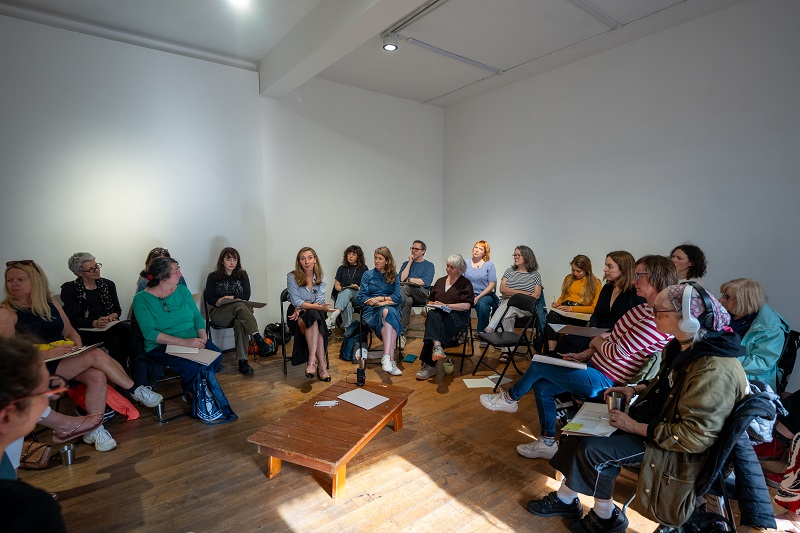
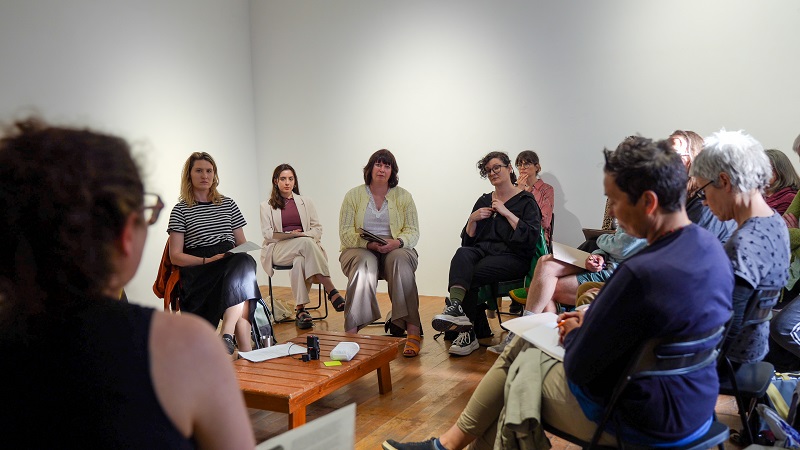
Just Transition panel 14 May - photo by (opens in a new window)Serhii Shapoval.
(opens in a new window)Entangled Life, supported by Community Foundation Ireland, is a programme of talks, workshops and art at Pallas Projects exploring the deep connections between climate, society, and the ecosystems where art and community intertwine.
Curated by Cristina Nicotra, the series aims to unravel climate and social topics by understanding ecology as a complex web of relationships—between humans, the more-than-human world, and political and natural environments.
The programme runs from May - December 2025 and aims to facilitate a network of relationships, collaboration and engagement between communities, artists and experts from research and policy contexts.
Over the course of eight months and eight topics, the series will create a space for learning and dialogue through a series of monthly panel talks, workshops and artistic interventions at Pallas Projects. It will culminate with an exhibition in December 2025.
Earth Institute researchers spoke as part of explorations for the first two panel discussions: (opens in a new window)Dr Egle Gusciute (UCD School of Sociology) contributed to (opens in a new window)The Art of Just Transition panel on 14 May, and (opens in a new window)Dr Tanja Narancic (UCD School of Biomolecular and Biomedical Science and BiOrbic Research Ireland Centre for Bioeconomy) talked about her work on bioplastics as part of the (opens in a new window)Biomaterials in Art and Society panel on 11 June.
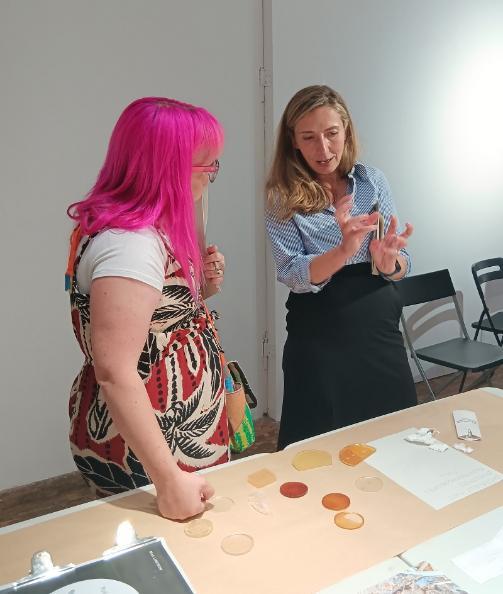
Tanja Narancic speaking with attendee
At the Biomaterials panel, Dr Narancic spoke in dialogue with fellow panel members interdisciplinary artist and researcher Martina Hynan PhD and with Eileen Hutton PhD, artist and Head of Art and Ecology at Burren College of Art.
The panel discussion honed in on plastic as a material and its place and devastating impact on our world. Tanja shared information about the work of bacteria in creating biobased and biodegradable polymers from food waste, and how bacteria can be employed to break down plastics, even petrochemical forms.
Artists Martina and Eileen discussed the role of biomaterials in their work, our connection to place and the non-human, and art’s role in speculation and the imagination of new ecological relationships. Afterwards, participants explored materials created by the artists and by biotechnology processes in the labs.
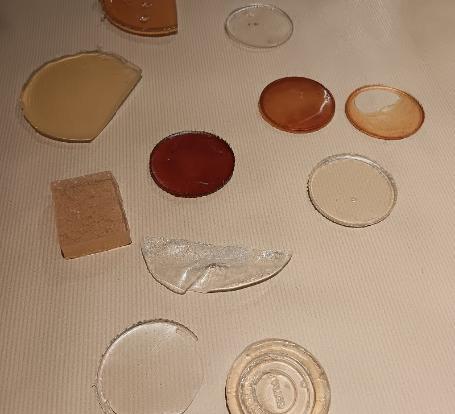
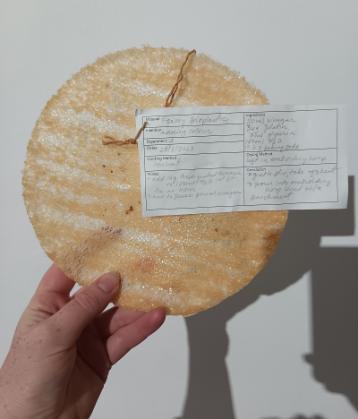
Biopolymers from Tanja's lab (left) and foamy bioplastic made by artist Eileen Hutton (right).
The panels are being recorded and will be shared along with full details of the programmed activities on the (opens in a new window)Pallas Projects website.